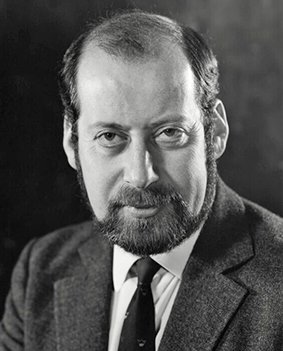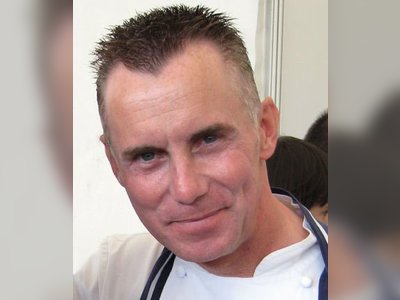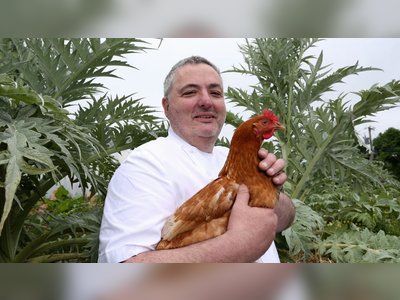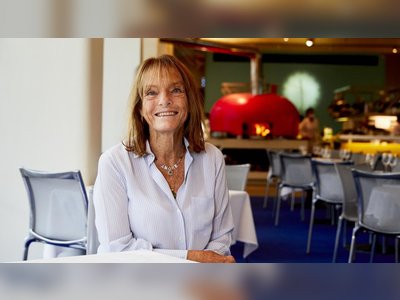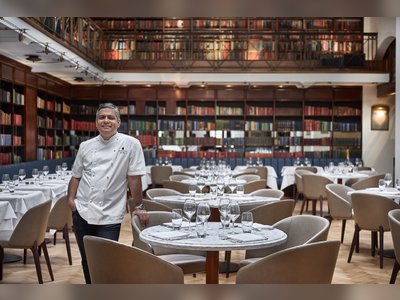British Heritage
Remember, Cherish, Learn.
beta
Clement Freud
An Intricate Tapestry of British Heritage.
Sir Clement Raphael Freud (24 April 1924 – 15 April 2009) was a multifaceted figure in British history, with a career spanning diverse fields from gastronomy to broadcasting, writing, and politics. However, his legacy has been marred by posthumous allegations of child sexual abuse. This narrative presents a comprehensive overview of Freud's significant contributions, achievements, controversies, and the nuanced legacy he left behind, all of which form an integral part of Britain's heritage.
Born as Clemens Rafael Freud in Berlin, Freud was the progeny of a prominent family. He was a grandson of the celebrated psychoanalyst Sigmund Freud, and the brother of the esteemed artist Lucian Freud. His family fled Nazi Germany and sought refuge in Britain, where his forenames were anglicised to Clement Raphael.
In the wake of World War II, Freud enlisted with the Royal Ulster Rifles and served under Field Marshal Montgomery. He played a crucial role at the Nuremberg Trials and was later commissioned as an officer. His early life in Britain formed the bedrock for his future endeavours that significantly impacted British society.
Freud embarked on his professional journey as a pioneering celebrity chef, making a mark in the British culinary scene. He was associated with the Dorchester Hotel and subsequently managed his own restaurant in Sloane Square. His culinary pursuits transcended into the realm of media, where he starred in a series of popular dog food advertisements. Furthermore, he displayed his storytelling prowess through his children's books, Grimble and its sequel, Grimble at Christmas.
His career trajectory then led him to the world of journalism and broadcasting. Starting as a sports journalist, Freud went on to become an award-winning food and drink writer. His wit, erudition, and charm found a wider audience through his long-standing association with the BBC Radio 4 panel show, Just a Minute, where he appeared in the first 143 episodes, and continued making regular appearances until his demise.
Freud's influence extended into the realm of British politics as well. He was elected as a Liberal Member of Parliament in the 1973 Isle of Ely by-election and held his seat until 1987. During his parliamentary tenure, Freud prioritised employment support in his constituency and assisted with the management buy-out of a concrete pipe manufacturer. His political career was recognised with a knighthood upon his departure from Parliament.
However, Freud's political journey was not without controversy. He was known for his candid commentary, exemplified by his quip on being "out-grandfathered" during an official visit to China. Moreover, his refusal to succumb to the Prime Minister's pressure during a critical vote of no-confidence marked a significant moment in his political career.
Beyond his political pursuits, Freud's cultural contributions to Britain were manifold. He made appearances in films, performed a monologue for the Wings 1973 album Band on the Run, and served two three-year terms as the Rector of the University of Dundee, before being elected Rector of the University of St Andrews in 2002.
Moreover, Freud's enthusiasm for horse racing led to a memorable event in 1972 when he challenged Sir Hugh Fraser to a race at Haydock. This resulted in him not only winning the race but also making significant profits from savvy side bets. His passion for the sport led to him becoming a well-known columnist for the Racing Post newspaper.
Freud's personal life was as complex as his career. He had five children, one of whom, Matthew Freud, founded the London public relations firm Freud Communications. His daughter, Emma Freud, a renowned broadcaster, became the partner of scriptwriter Richard Curtis. However, Freud's life was not free from discord; a decades-long feud with his brother Lucian Freud remained unresolved at his death.
After Freud's death in 2009, allegations of child sexual abuse surfaced. The ITV documentary, Exposure: Abused and Betrayed – A Life Sentence, revealed testimonies from two women, who claimed to have been victims of Freud's predatory behaviour. His widow, Jill Freud, acknowledged the claims and extended an apology to the victims.
Sir Clement Freud remains an enduring, albeit controversial, figure in British heritage. His journey from a war-time immigrant to a knighted parliamentarian, celebrated broadcaster, and noted culinary personality underscores a remarkable life of achievements. Simultaneously, the posthumous allegations of abuse cast a dark shadow on his legacy. Consequently, the narrative of Sir Clement Freud presents an intricate tapestry of success, contributions, and controversies, reflecting the complexity of human life and the multifaceted nature of British heritage.
Early Life and Ascendancy
Born as Clemens Rafael Freud in Berlin, Freud was the progeny of a prominent family. He was a grandson of the celebrated psychoanalyst Sigmund Freud, and the brother of the esteemed artist Lucian Freud. His family fled Nazi Germany and sought refuge in Britain, where his forenames were anglicised to Clement Raphael.
In the wake of World War II, Freud enlisted with the Royal Ulster Rifles and served under Field Marshal Montgomery. He played a crucial role at the Nuremberg Trials and was later commissioned as an officer. His early life in Britain formed the bedrock for his future endeavours that significantly impacted British society.
The Making of a Renaissance Man
Freud embarked on his professional journey as a pioneering celebrity chef, making a mark in the British culinary scene. He was associated with the Dorchester Hotel and subsequently managed his own restaurant in Sloane Square. His culinary pursuits transcended into the realm of media, where he starred in a series of popular dog food advertisements. Furthermore, he displayed his storytelling prowess through his children's books, Grimble and its sequel, Grimble at Christmas.
His career trajectory then led him to the world of journalism and broadcasting. Starting as a sports journalist, Freud went on to become an award-winning food and drink writer. His wit, erudition, and charm found a wider audience through his long-standing association with the BBC Radio 4 panel show, Just a Minute, where he appeared in the first 143 episodes, and continued making regular appearances until his demise.
Political Legacy
Freud's influence extended into the realm of British politics as well. He was elected as a Liberal Member of Parliament in the 1973 Isle of Ely by-election and held his seat until 1987. During his parliamentary tenure, Freud prioritised employment support in his constituency and assisted with the management buy-out of a concrete pipe manufacturer. His political career was recognised with a knighthood upon his departure from Parliament.
However, Freud's political journey was not without controversy. He was known for his candid commentary, exemplified by his quip on being "out-grandfathered" during an official visit to China. Moreover, his refusal to succumb to the Prime Minister's pressure during a critical vote of no-confidence marked a significant moment in his political career.
Cultural Contributions
Beyond his political pursuits, Freud's cultural contributions to Britain were manifold. He made appearances in films, performed a monologue for the Wings 1973 album Band on the Run, and served two three-year terms as the Rector of the University of Dundee, before being elected Rector of the University of St Andrews in 2002.
Moreover, Freud's enthusiasm for horse racing led to a memorable event in 1972 when he challenged Sir Hugh Fraser to a race at Haydock. This resulted in him not only winning the race but also making significant profits from savvy side bets. His passion for the sport led to him becoming a well-known columnist for the Racing Post newspaper.
Personal Life and Controversies
Freud's personal life was as complex as his career. He had five children, one of whom, Matthew Freud, founded the London public relations firm Freud Communications. His daughter, Emma Freud, a renowned broadcaster, became the partner of scriptwriter Richard Curtis. However, Freud's life was not free from discord; a decades-long feud with his brother Lucian Freud remained unresolved at his death.
After Freud's death in 2009, allegations of child sexual abuse surfaced. The ITV documentary, Exposure: Abused and Betrayed – A Life Sentence, revealed testimonies from two women, who claimed to have been victims of Freud's predatory behaviour. His widow, Jill Freud, acknowledged the claims and extended an apology to the victims.
Conclusion: The Legacy of Sir Clement Freud
Sir Clement Freud remains an enduring, albeit controversial, figure in British heritage. His journey from a war-time immigrant to a knighted parliamentarian, celebrated broadcaster, and noted culinary personality underscores a remarkable life of achievements. Simultaneously, the posthumous allegations of abuse cast a dark shadow on his legacy. Consequently, the narrative of Sir Clement Freud presents an intricate tapestry of success, contributions, and controversies, reflecting the complexity of human life and the multifaceted nature of British heritage.
- Clement Freuden.wikipedia.org
